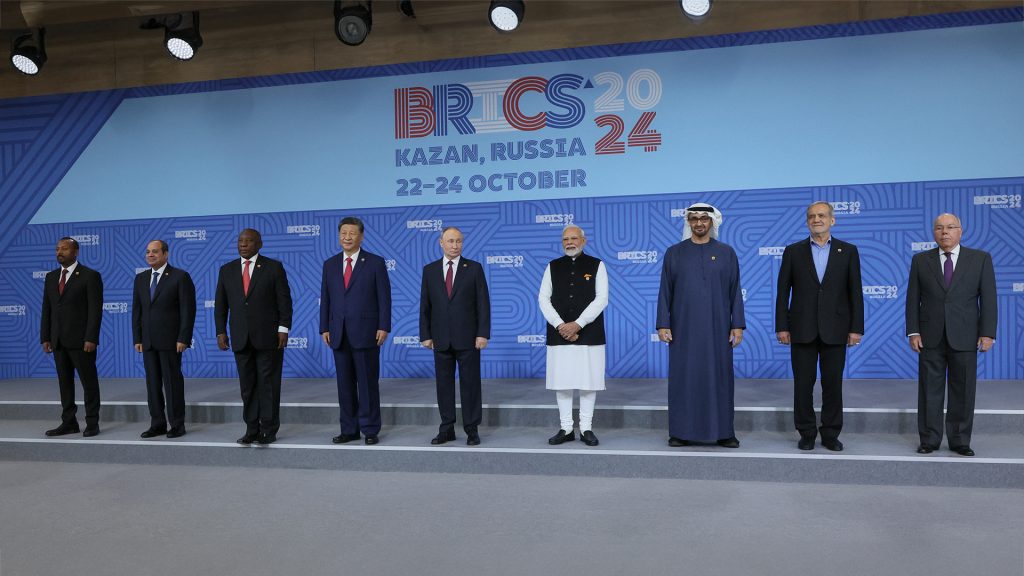The BRICS group held its first summit since its expansion in 2023, during which proposals were discussed to reduce reliance on the US dollar and the SWIFT system. The group, which has almost doubled in size since 2024, now represents about half of the world’s population and more than a quarter of global GDP. However, critics argue that there are deep differences between its members and the alliance has struggled to define its purpose. The main goal of BRICS is to reduce global reliance on the US dollar, with the launch of a rival to the SWIFT international payment system being a key topic of discussion at the recent summit in Russia.
One of the major challenges facing the BRICS group is how to reduce their dependence on the US dollar and the SWIFT system, which are currently dominant in global financial markets. By creating an alternative international payment system, BRICS members hope to increase their economic independence and minimize the influence of the US dollar on their financial transactions. This move is seen as a way to assert their economic power on the global stage and challenge the dominance of Western financial institutions.
China, as one of the leading members of the BRICS group, plays a crucial role in stabilizing its property market and ensuring economic growth. The Chinese government has introduced various measures to control housing prices and prevent speculative bubbles, but the property market remains a key concern for policymakers. China’s ability to balance economic growth with property market stability will be crucial for the future development of the country and its role within the BRICS group.
In addition to economic challenges, the BRICS group also faces political tensions and internal disagreements among its members. The alliance comprises countries with diverse political systems and ideologies, which can make it difficult to reach consensus on key issues. Critics argue that these deep differences within the group have hindered its ability to define a clear purpose and strategy for cooperation. Despite these challenges, BRICS continues to expand its influence on the global stage and play a key role in shaping international economic policies.
On a different note, tech giants are increasingly turning to nuclear energy as a sustainable and efficient power source for their operations. Companies like Google and Microsoft are investing in advanced nuclear technologies that promise to provide clean and reliable energy for their data centers and other facilities. By embracing nuclear power, tech giants are seeking to reduce their carbon footprint and contribute to global efforts to combat climate change. This shift towards nuclear energy highlights the growing importance of sustainable practices in the tech industry.
Overall, the BRICS group is facing a range of economic and political challenges as it seeks to assert its influence on the global stage. By reducing reliance on the US dollar and the SWIFT system, BRICS members hope to increase their economic independence and strengthen their position in the international financial system. China’s role in stabilizing its property market and balancing economic growth will be crucial for the future development of the group. Meanwhile, tech giants are turning to nuclear energy as a sustainable power source, highlighting the growing importance of environmental sustainability in the tech industry.















